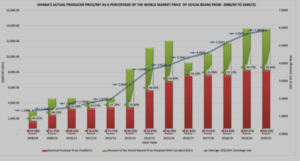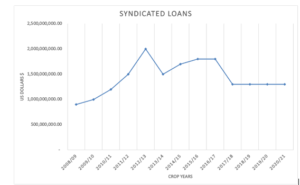By Kwame Asamoah KWARTENG
At a recent networking session, I met a South African entrepreneur who shared his experiences visiting Kumasi, my birthplace in Ghana. He was fascinated by the unique landscape of Kumasi’s economy, especially the predominance of small-scale, self-sustaining businesses.
Unlike his home country, where large corporations dominate, Kumasi is alive with sole traders: corner stalls selling rice and stew, local bakeries, and the vibrant Kumasi Central Market, the largest traditional market he has ever seen.
As someone who grew up in Kumasi, having sold iced water as a child and helped my mother in the Central Market selling locally made slippers, I was initially puzzled by his surprise. However, he soon explained his perspective.
In South Africa, many people are employed by large corporations, and a single company’s collapse could leave thousands of people jobless. In contrast, Kumasi’s economy, though not as “flashy,” thrives on a web of smaller businesses. The collapse of one small business wouldn’t bring down an entire community. This decentralised, self-sustaining system provides a safety net of sorts, ensuring that livelihoods aren’t tied to the fortunes of a single corporate entity.
This conversation led me to reflect on my own experiences and Ghana’s broader economic structure, particularly in the cocoa farming sector. Much like the businesses in Kumasi, Ghana’s cocoa industry is predominantly made up of smallholder farmers. These small-scale farmers are responsible for producing the high-quality cocoa that Ghana is renowned for, fetching premium prices in international markets due to the care and attention involved in production.
Smallholder farming allows families to produce cocoa with love and attention to detail, passing down the knowledge of farming and land care from generation to generation. This has made cocoa farming not just a livelihood but a legacy, one that provides a steady, albeit modest, income and something to pass on to future generations. However, despite these advantages, smallholder farmers remain marginalised, their potential stifled by policies that favour larger entities.
A controlled system has been imposed on these smallholder farmers, limiting their ability to benefit fully from their hard work. Under current policies, the Ghana Cocoa Board acts as the sole buyer and seller of cocoa, leaving farmers with little say in the pricing or selling process.
They lack the critical market information and autonomy needed to negotiate prices that reflect the true value of their work. This system has turned what should be an empowering model of smallholder farming into one that exploits the very farmers it claims to support.
It is ironic that while Ghana champions smallholder farming, it is not because of a desire to empower these farmers. Instead, smallholder farming has become a tool for the state to control an export product, with profits often directed more toward the administration than the farmers themselves.
My analysis shows a significant portion of the revenue from cocoa sales is retained by the Ghana Cocoa Board while the farmers continue to struggle.


Meanwhile, corporate chocolatiers are keenly waiting for the opportunity to dismantle smallholder farming altogether. They are already exploring ways to replace small-scale farming with large, technology-driven operations that employ fewer people and concentrate profits in the hands of a few.
This is already happening in places like Indonesia, where companies such as Olam and Mondelez have shifted to more commercial, industrialised farming methods. The implications for Ghana are clear: allowing corporate farming would not only destroy the livelihoods of countless smallholder farmers but also strip entire communities of their economic independence.
So what is the solution? Should Ghana give in to the pressures of corporate farming, thereby exacerbating inequality and deepening poverty in rural areas? Or should we take a stand and reform policies to ensure that smallholder farmers benefit fully from their labour and contributions?
We must strengthen the smallholder farming model, not weaken it. Small-scale farmers need access to better resources, education, and market information so they can retain control over their produce and prices.
Only by supporting smallholder farming in a way that truly benefits the farmers can we ensure that the wealth from cocoa farming is more equitably distributed and that future generations continue to thrive on this legacy.
The conversation I had with my South African friend reminded me of the resilience and strength embedded in Kumasi’s economy and Ghana’s smallholder farmers. These systems, if managed correctly, can offer sustainable livelihoods. But it’s time for a new approach, one that puts the interests of farmers first, not last.
Kwame is the editor of The Cocoa Diaries Newsletter, Co-founder of PolicyCON and Active Ageing Initiative. He leverages his extensive experiences to champion social causes, advocating for Cocoa farmers, amplifying the voices of the unheard, and supporting the vulnerable.
LinkedIn: https://www.linkedin.com/in/kwameasamoahkwarteng/
Email: [email protected] / [email protected]










